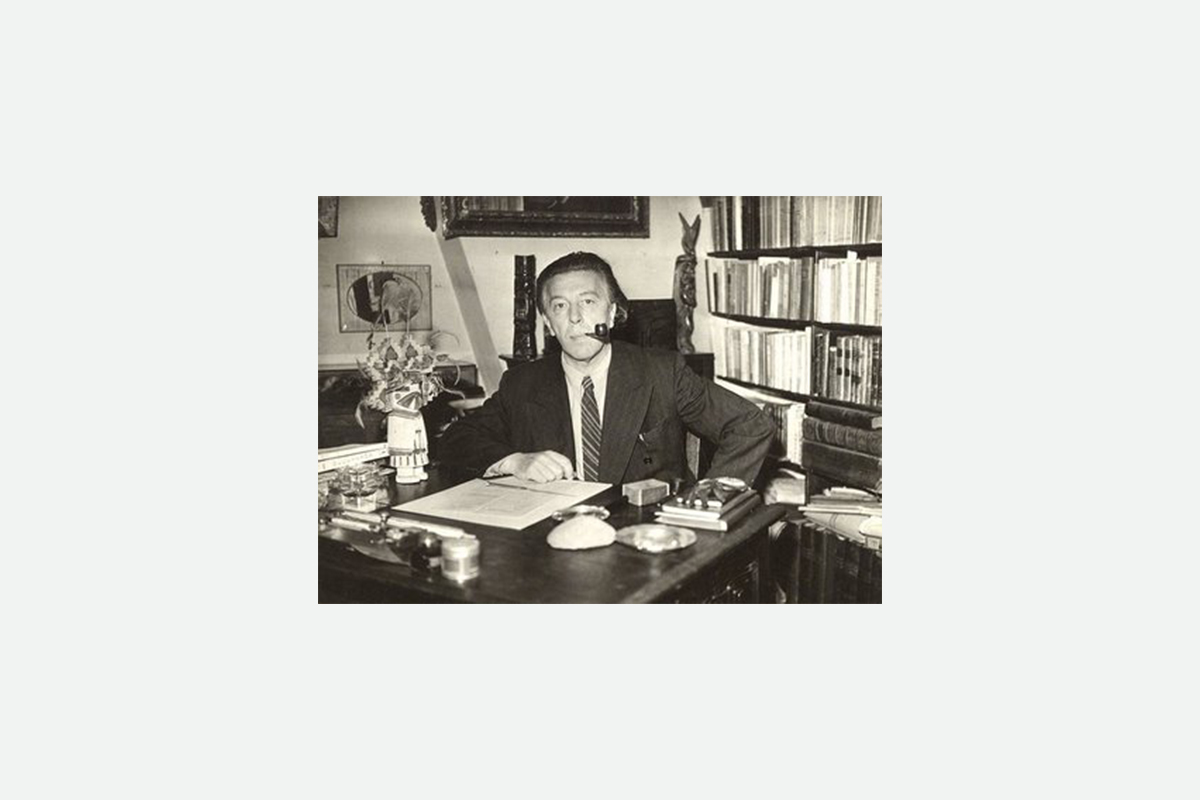5 Fantastical Surrealist Poets to Expand Your Imagination
Poetry lovers know that the genre relies on creative literary devices like symbolism, simile, and metaphor, rather than the literal. Surrealism—a poetic movement that started in the 1920s and continues to flourish today—takes this a step further.
In the 1924 Surrealist Manifesto, famed poet André Breton emphasized the “disinterested play of thought” and “omnipotence of dreams” as key poetic features, arguing they should be prioritized over logic and narrative structure. Surrealist poetry considers psychoanalysis and the liberated, unconscious mind, often resulting in a dreamlike, stream-of-consciousness writing style. These six writers present an eerie introduction to the surrealist aesthetic.
1. John Ashbery
Also part of The New York School, John Ashbery won a Pulitzer Prize, a National Book Award, and the Yale Younger Poets Prize throughout his life, among other awards. He received these honors in part because judges often described his work as inimitable, due to its fascinatingly strange and abstract qualities. “My poetry imitates or reproduces the way knowledge or awareness come to me, which is by fits and starts and by indirection,” Ashbery told The London Times. In fact, Ashbery was known to be perplexed by his own work. Those wanting to best understand Ashbery’s style should start with Self-Portrait in a Convex Mirror, largely regarded as a surrealist masterpiece and one of the movement’s most influential texts.
2. André Breton
As the author of the Surrealist Manifesto, André Breton played a pivotal role in both defining and expanding the movement. Breton called surrealism “the dictation of thought, free from any control by the reason and of any aesthetic or moral preoccupation.” Therefore, he saw it as the most free-flowing and genuine form of writing. Breton’s work showcases the intersectionality and widespread influence of poetry as an art form: In addition to his writing, he was also a medical student who focused on psychology and mental health, as well as an active political organizer. To grow their understanding of surrealism in art, poets can read Breton’s foundational text, titled What Is Surrealism?
3. Robert Desnos
Robert Desnos was a French poet and close friend of André Breton. The two were known to practice what they called “automatic writing” together, which involved writing from a trance-like state and recording the mind’s natural leaps. As a result, his poems are largely defined by their sound and their unexpected playfulness. Desnos continues to serve as one of the greatest examples of how to fight for justice using poetry. He served in the French Resistance against Nazi occupation, penning essays that satirized and criticized the Nazi regime under various pennames. Essential Poems and Writings of Robert Desnos weaves together his poetry and work in other genres in one striking volume.
4. Penelope Rosemont
Penelope Rosemont is a living surrealist poet and the founder of the Chicago Surrealist Group. In addition to her creative work, Rosemont focuses largely on canonizing the women of the original Surrealist movement, who have often been left out of historical texts and archives. Her book Surrealist Women: An International Anthology illuminates their experiences and voices. Rosemont sees surrealism as a movement built upon rebellion and protest, and often participates in anti-war demonstrations and organizing.
5. Octavio Paz
Many Mexican, Latin, and indigenous poets played an unforgettable role in popularizing surrealism, as exemplified by Octavio Paz. The indigenous Mexican poet and diplomat published his first poems while still a teenager. Like other surrealist poets, Paz used the movement as a lens through which to criticize society and advocate for change. One of his most famous poems, “Between the Stone and the Flower,” drew attention to working-class Mexicans and their exploitation under landlords. Paz won The Nobel Prize in Literature in 1990. The Collected Poems of Octavio Paz offers a sweeping view of his work.
Feeling inspired? Embrace surrealist poetry yourself by writing a poem just after you’ve woken up. Try to incorporate details from your dreams to create an otherworldly work.




